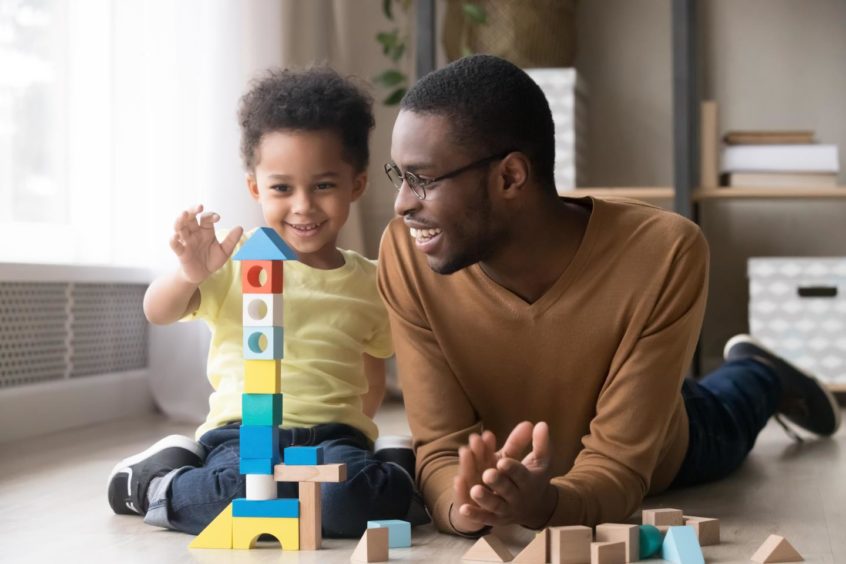Like most people, I feel enormous frustration when listening to interviews with politicians, amazed by the frequency and scale of the yawning chasm between question and response.
How has it come to this? Let’s go back to childhood to try and work it out.
Parenting is a job. And, like all jobs, it comes with a series of measurable outcomes through which we can evaluate our effectiveness.
We start out terrified, knowing nothing apart from our duty to see the role through to its end goal, which is to turn out young adults who can survive on their own in the wild.
The hours are horrendous. Our basic tasks involve delivering love, food and shelter and we are expected to add value by ensuring they leave our care with sound toothbrushing habits, a minimally traumatic education and some swimming badges.
It all comes down to empathy
There’s more to it than that, obviously, so I messaged my three 20-something children.
“Tell me one thing you think is an absolute basic that a parent should teach their child,” I typed, adding a needy smiley face emoji and some kisses.
The responses began well. How to tie shoes came first – tick. Basic housework know-how – tick. Please and thank you.
But then the floodgates opened. The “one thing” rule flew out the window and the replies tumbled in. Confidence. Independence. Honesty. Manners. Respect. How to behave in public. The value of hard work. Consent. Kindness. Safe sex. The realities of life and death. An understanding that parental love and support is unconditional.
By this point, of course, I’m growing a little shifty but they’re on a roll.
Treating everyone the same, from prince to pauper. An understanding that everyone has control over their own rights and their own space. Gratitude for what you have and a realisation that what you have doesn’t make you better than anyone else. Not to be beaten and never to give up.
“So… how did we do?” I eventually type back, tensely.
“C minus” comes the – surely – light-hearted response, although with a job description like the one above, a C minus seems like a pretty strong outcome. I should be happy with that.
After all, academic excellence, the acquisition of money and the right to do anything we please didn’t get a mention and that warms my heart.
If we were to collate the responses into some kind of appraisal spreadsheet, a dominant pattern would emerge. Most of them involve understanding how to relate to others and where to place ourselves valuably in a world formed of human interaction. It’s empathy, isn’t it?
Politicians bring out the frustrated parent in me
So, back to politicians and interviews. Whenever a politician on the radio or TV dodges, hurls blame and obfuscates their response to a direct question, I feel a surge of parental exasperation. I wonder when and why that empathy got lost along the way.
This person is in a position of power, representing me and my family, and they are making fools of us and wasting our time. But we put up with it because we expect it now, even though we wouldn’t tolerate it at home. At what point did that person turn their back on everything they ought to have learned as a child? And how dare they ignore a direct question and “bridge” to the message they planned to deliver all along?
It’s what they’ve been trained to do but that’s no excuse. Who trains them – foxes?
I’ve never once heard a politician listen to a question and reply: “I’m afraid I don’t know but I’ll do my best to find out”, thereby respecting the interviewer and valuing the intelligence of the listener. Wouldn’t it be lovely?
Time for a spell in the naughty corner?
I suppose, like children, they do it because they can get away with it. Interviewers have a tough job but their interview protocols need to change. When you think how swiftly media outlets try to adapt to keep up with the times (Twitter feeds, podcasts, digital content) and hold themselves to account (diversity and inclusion strategies, equal pay) it’s tough that they continue giving airtime and status to the bluffers, the windbags, the blamers-of-others, the evaders of answers and the strangers to truth. I’m so hacked off with it.
Perhaps journalists could tell politicians firmly: “This interview is over. You had the nice thing and you didn’t look after it, so you can’t have the nice thing any more.”
Then get someone else. Someone with empathy, who remembers what they were taught as a child.
Erica Munro is a novelist, playwright, screenwriter and freelance editor


